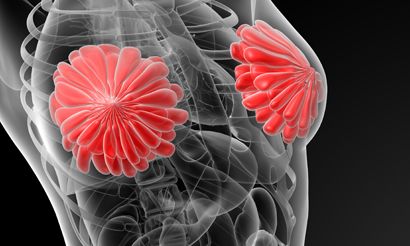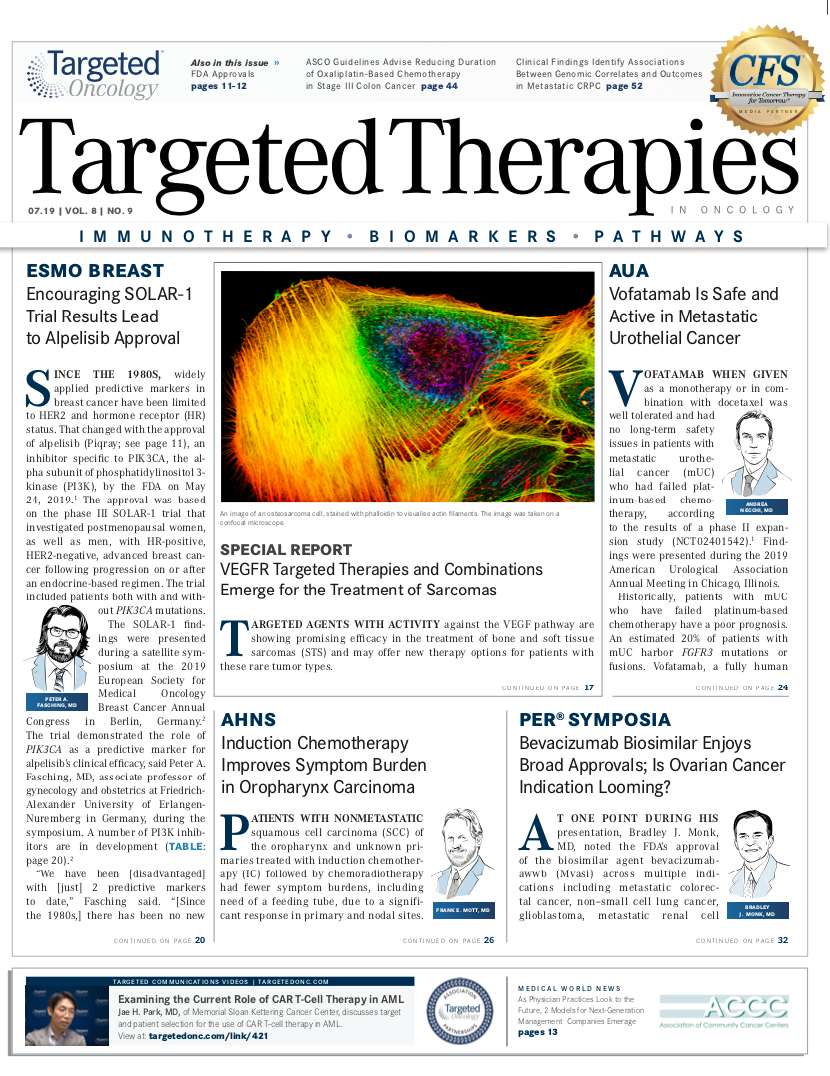Tolerability Improves With Prophylactic Strategies for Adjuvant Neratinib in HER2+ Breast Cancer
Preventive strategies for severe diarrhea associated with adjuvant treatment with neratinib improved tolerability for the agent when patients received budesonide or colestipol-with-loperamide prophylaxis, according to findings from the CONTROL study.

Preventive strategies for severe diarrhea associated with adjuvant treatment with neratinib (Nerlynx) improved tolerability for the agent when patients received budesonide or colestipol-with-loperamide prophylaxis, according to findings from the CONTROL study.1
When neratinib was approved in 2017, there was concern over the high rate of diarrhea seen in the phase III ExteNET trial: any-grade, 95%, and grade 3, 40%.2Yet, the FDA’s Oncologic Drugs Advisory Committee voted 12-4 in patients with early- stage HER2-positive breast cancer following postoperative treatment with trastuzumab (Herceptin).3
At the time, early indications from the ongoing phase II CONTROL trial suggested that antidiarrheal prophylaxis or controlled dose escalation of neratinib could manage the frequency and severity of diarrhea for patients receiving neratinib.
Updated findings from the CONTROL trial presented at the 2019 American Society of Clinical Oncology Annual Meeting demonstrated that this remains true, thereby improving the potential tolerability of the drug for patients with HER2-positive disease.1
The open-label, sequential-cohort study looked at various prophylactic regimens and potential neratinib dose escalation in adult patients with HER2-positive stage I-IIIc breast cancer who had completed adjuvant trastuzumab-based therapy or stopped trastuzumab early due to adverse effects (AEs) and were being treated with 1 year of neratinib. The study looked to the incidence of grade ≥3 diarrhea as the primary endpoint.
The prophylactic cohorts included loperamide (n = 137), budesonide and loperamide (n = 64), colestipol and loperamide (n = 136), and colestipol with loperamide as needed (n = 104), all with 240 mg/day of neratinib for 1 year. There was 1 dose-escalation cohort included in the data which gave 120 mg/day of neratinib on days 1 through 7, followed by 160 mg/day on days 8 through 14, and 240 mg/day through the end of the year period with loperamide as needed (n = 60). The dose-escalation cohort and the cohort of patients receiving colestipol with loperamide as needed, are ongoing.
Each of the preventive strategies demonstrated a reduction in the rate of treatment-emergent grade ≥3 diarrhea; and no grade 4 events of diarrhea were reported. In the loperamide-alone arm, the rate of any-grade diarrhea was 79.6%, and the grade 3 rate was 30.7%. With budesonide and loperamide prophylaxis, the any-grade rate was 85.9% and the grade 3 rate, 28.1%. The rates of any-grade and grade 3 diarrhea were 83.1% and 20.6%, respectively, with colestipol and loperamide prophylaxis, and were 95.2% and 31.7% when loperamide was given as needed only with colestipol. In the dose-escalation cohorts, the rate of any-grade diarrhea was 95.0%, which was consistent with the rate seen in the ExteNET trial; the rate of grade 3 diarrhea was 11.7%.
Grade 3 diarrhea duration and frequency were also reduced across each cohort. The rate of treatment discontinuation due to diarrhea was decreased from the ExteNET trial (16.8%) in all but the loperamide-alone cohort (20.4%). Two patients (1.5%) in the loperamide-only cohort required hospitalization. The rate of dose reductions was especially lower in the budesonide or colestipol-with-loperamide cohorts.
The incidence of other AEs was similar to that previously reported with neratinib. However, there was an increase in the rate of treatment-emergent constipation, although there were no grade 3/4 events noted.
References
- Barcenas CH, Hurvitz SA, Di Palma JA, et al. Effect of prophylaxis on neratinib-associated diarrhea and tolerability in patients with HER2+ early-stage breast cancer: Phase II CONTROL trial.J Clin Oncol. 2019;37 (suppl 15;abstr 548). doi: 10.1200/JCO.2019.37.15_ suppl.548.
- Chan A, Delaloge S, Holmes FA, et al; ExteN- ET Study Group. Neratinib after trastuzumab-based adjuvant therapy in patients with HER2-positive breast cancer (ExteNET): a multicentre, randomised, double- blind, placebo-controlled, phase 3 trial.Lancet Oncol. 2016;17(3):367-377. doi: 10.1016/S1470- 2045(15)00551-3.
- Puma Biotechnology receives FDA advisory commit- tee support for neratinib [news release]. Los Angeles; Puma Biotechnology, Inc.: May 24, 2017. bit.ly/2XqR- 8cu. June 20, 2019.
